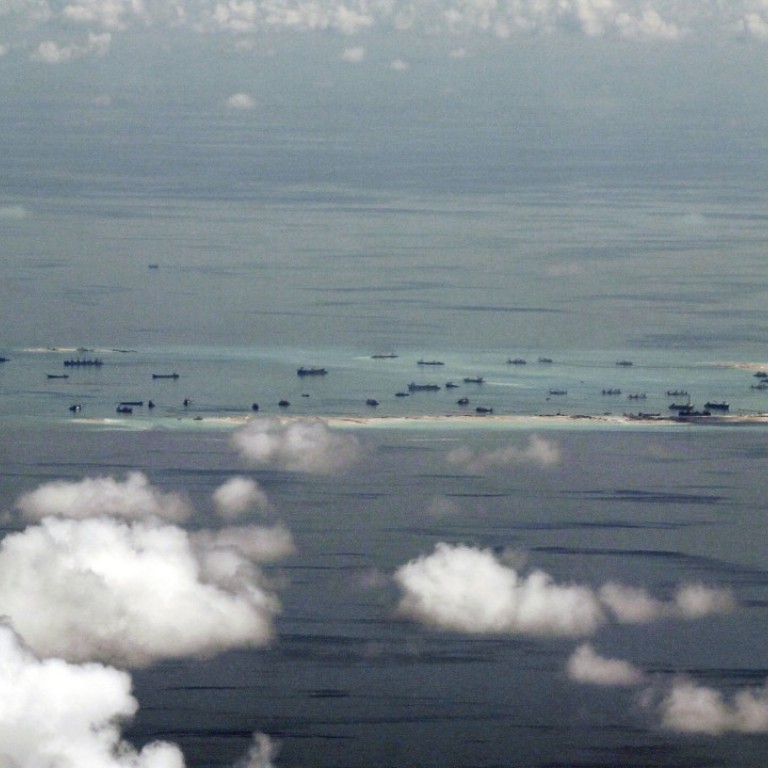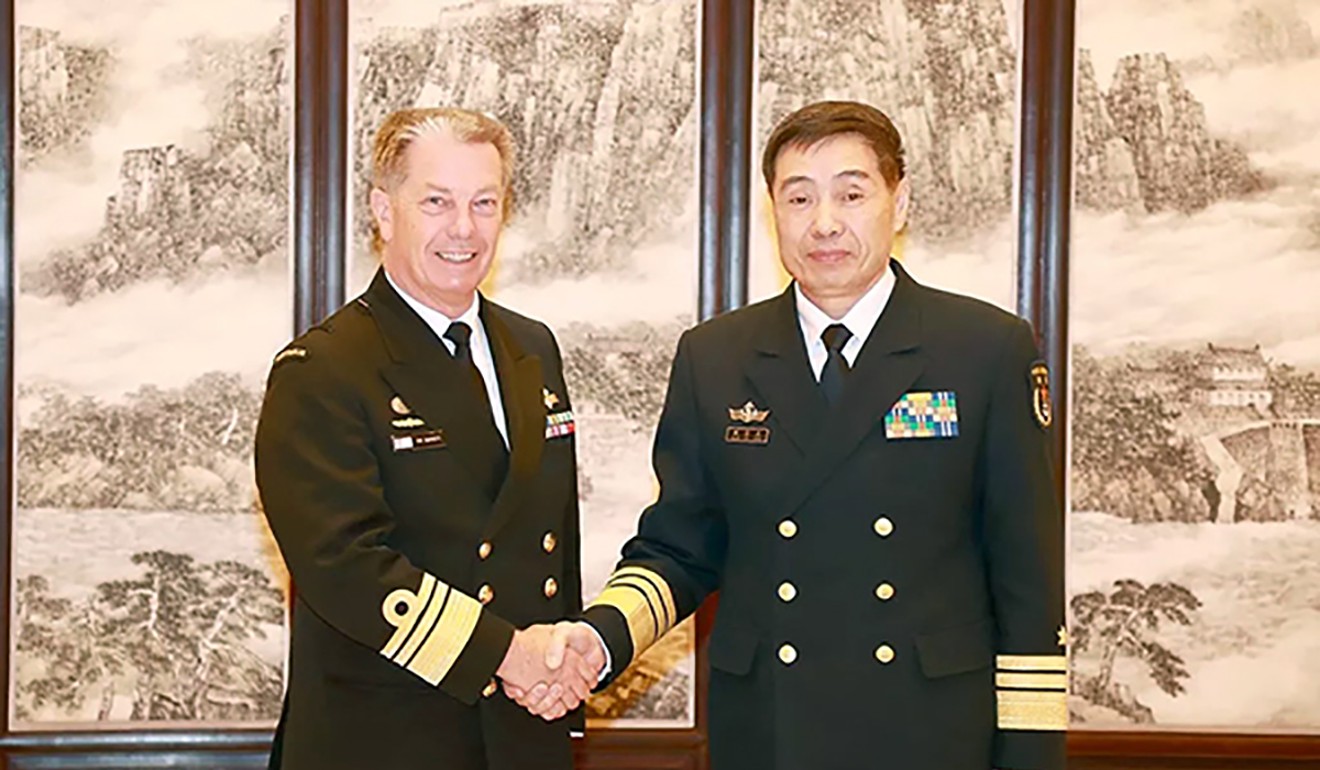
Top Chinese commander takes aim at Australia over South China Sea military moves
Accusation launched amid diplomatic row over allegations of Chinese political interference in Australian politics
China’s top commander has accused Australia of compromising peace and stability in the disputed waters of the South China Sea.
The accusation comes amid growing wariness in Canberra over China’s roles in the region and a diplomatic row over alleged Chinese political interference in Australian politics.
People’s Liberation Army Navy commander Lieutenant Admiral Shen Jinlong levelled the claim during a meeting with his Australian counterpart Vice Admiral Tim Barrett in Beijing on Thursday, the Ministry of National Defence said.
“The situation in the South China Sea is positive, but a series of moves by the Australian military this year has compromised the overall trend of peace and stability in the area,” Shen was quoted as saying.
“This goes against the consensus agreed by leaders of both countries, as well as the goodwill they are trying to develop. It is also not beneficial to the safety and stability of the region.”
Shen did not refer to a specific incident but in June Australia joined Japan, Canada and the United States for two days of military exercises in the South China Sea.
He also warned Australia to take into consideration the rights and concerns of the countries involved, and to “add positive elements” to the relationship.

Canberra has traditionally called for restraint and respect for international laws in the disputed waters, over which China insists it has sovereignty. Other countries in the region, including the Philippines, Vietnam and Malaysia, also lay claim to the area.
But in a foreign policy white paper in November, the Australian government criticised China’s creation of artificial islands in the South China Sea.
Zhang Jie, Southeast Asian affairs specialist at the Chinese Academy of Social Sciences, described the Chinese navy chief’s comment as “sharp-edged” and “openly frank”.
“It is a sensitive time for top leadership [from the two countries] to be meeting, and China has used the opportunity to show its attitude towards Australia,” Zhang said. “But it also suggests that the relationship is not bad, otherwise the meeting would not have taken place.”
She also said China had noticed that Australia had taken a stronger stand on the contested waters.
“[Australia] has been active in the South China Sea in the past year, and has shown more aggression than the United States,” Zhang said.
The commanders met just days after Australian ambassador to China Jan Adams was summoned by the Chinese foreign ministry over the introduction of a new Australian law that bans foreign political donations.
The legislation was prompted by a political controversy over Australian Labor Party lawmaker Sam Dastyari links with a wealthy Chinese Australian businessman, Huang Xiangmo, a political donor with close ties to Beijing. Dastyari resigned from the senate a few days ago.
Australian Prime Minister Malcolm Turnbull has also expressed concerns about reports of Chinese interference in Australian universities and politics. Beijing has denied the allegations and criticised Turnbull for harming bilateral relations.
Rory Medcalf, head of the National Security College at the Australian National University, said China was only ramping up criticism of Australia on maritime security because of the wider mistrust in the aftermath of Canberra’s crackdown on foreign interference.
“This conflation of a political problem and with bilateral defence ties is not helpful, as both the Chinese and Australian navies have been improving communication and coordination through dialogues and exercises in recent years,” Medcalf said, referring to Shen’s comments.
“Australia has done nothing provocative or against international law in the South China Sea, although it is one of many countries that is concerned about Beijing’s militarised island-building in disputed waters.”
Zhang said there could be tough times ahead for Sino-Australian relations, just as talks between Canada and China stalled over human rights issues.
“Australia has strong social values that are different to China’s, and this is bound to result in further diplomatic clashes,” Zhang said.

